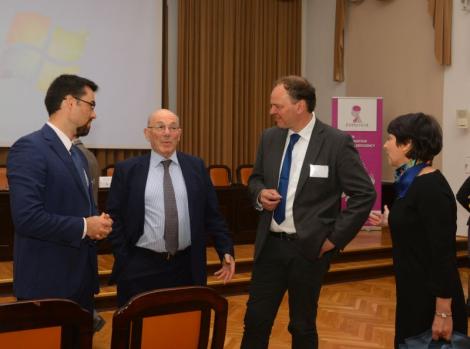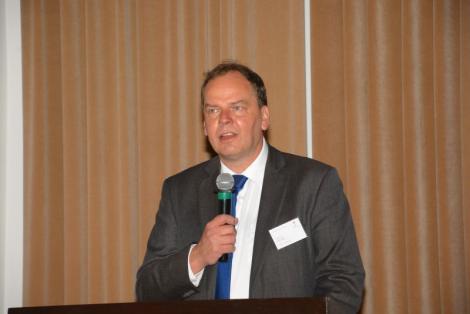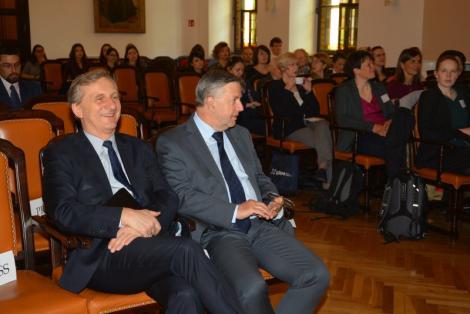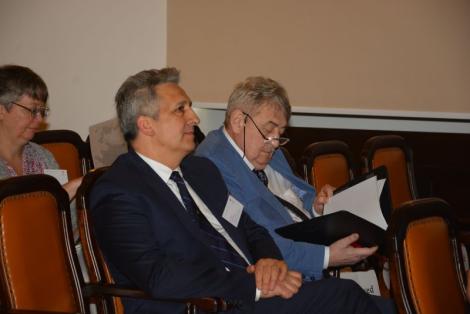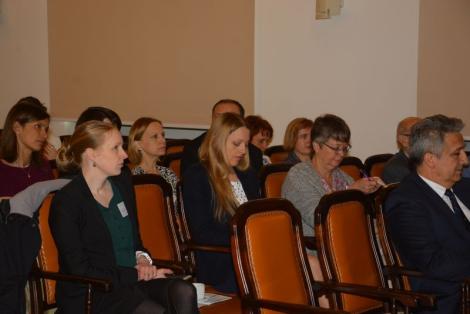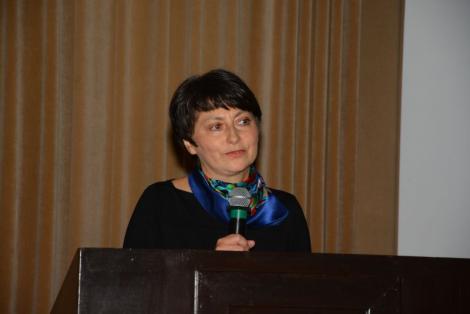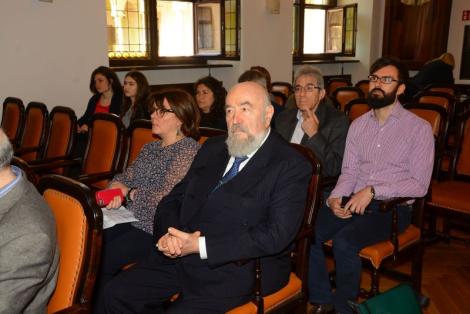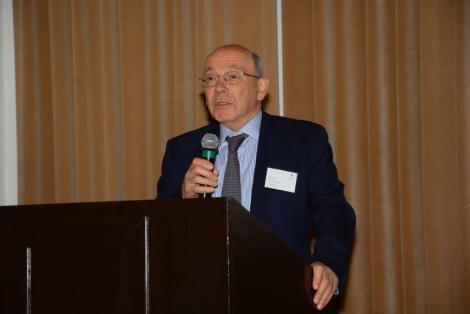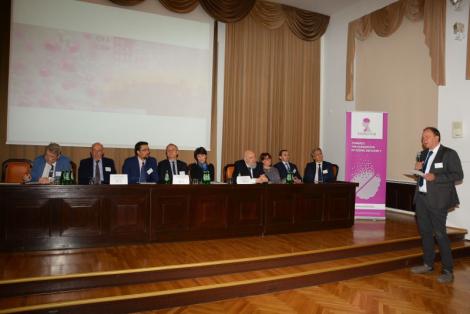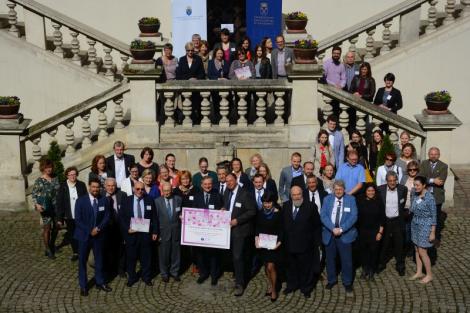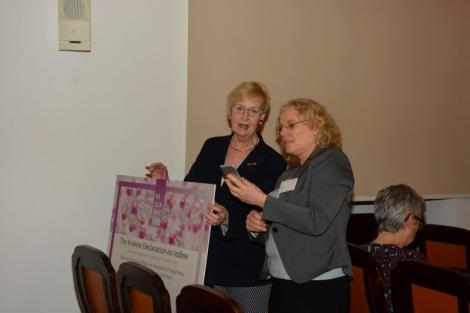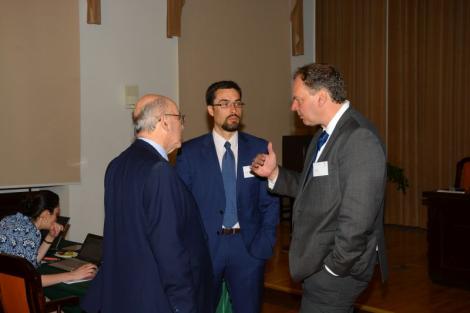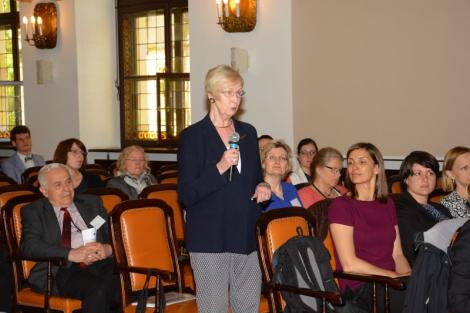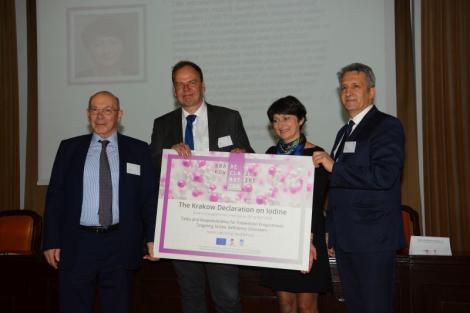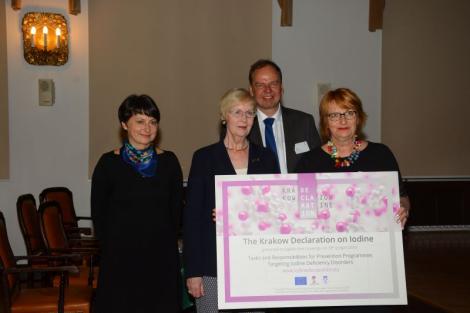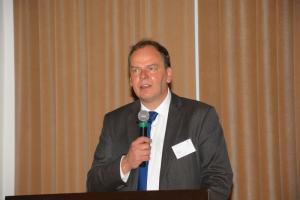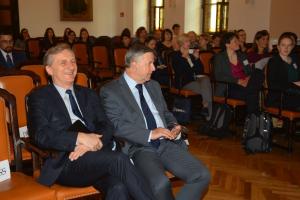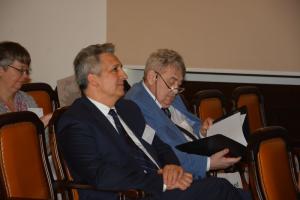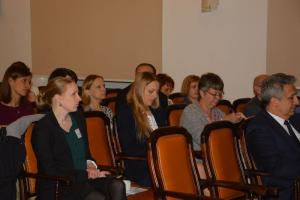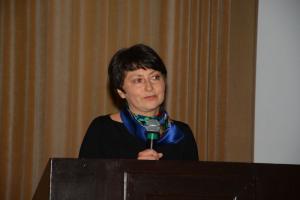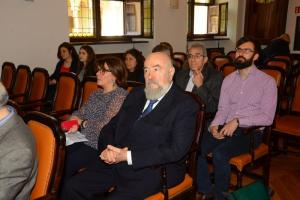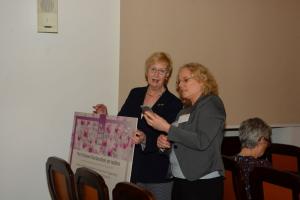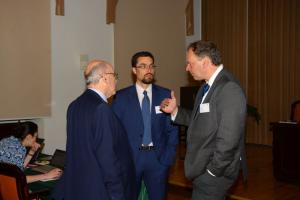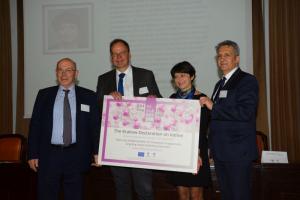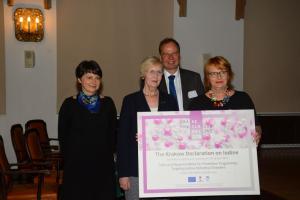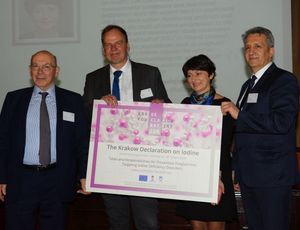
On 18 April, the international Krakow Declaration on Iodine was signed at the JU Collegium Novodvorscianum. Its signatories – researchers participating in the European Union-funded ‘EUthyroid’ project supported by a number of worldwide organisations – appealed to European politicians and policymakers to collaborate on fighting iodine deficiency in the general population.
The declaration meeting was attended by representatives of universities and key international organisations from the areas of health care, nutrition, and treatment of thyroid – the internal organ that is most harmed by iodine deficiency. Among them was Tedros Adhanom from the World Health Organisation, Prof. Henry Völzke from the Ernst Moritz Arndt University in Greifswald, ‘EUthyroid’ project coordinator, Prof. John Lazarus from the Iodine Global Network, Prof. Alicja Hubalewska-Dydejczyk from the Jagiellonian University Medical College, Prof. Marek Ruchała from the Polish Society of Endocrinology, Attilio Caligiani from the World Iodine Association, Laura Lina Henderson from the Thyroid Federation International, Dr Vincenzo Costigliola from the European Medical Association and Greg Garrett from the Global Alliance for Improved Nutrition as well as Polish Deputy Minister of Health Zbigniew Król.
When describing the ‘EUthyroid’ project, Prof. Henry Völzke emphasised that ‘researchers received important funds to build up capacities for cost effective IDD prevention programs. Researchers now require the commitment by stakeholders to utilise these for harmonised iodine monitoring. Therefore, the Krakow Declaration on Iodine demands national governments and public health officials to be aware of their responsibility to take care of the sufficient iodine status of their populations instead of relying on scientists and other stakeholders to take action. This is the only way to eradicate iodine deficiency disorders in Europe’.
Prof. Alicja Hubalewska-Dydejczyk added that ‘the introduction of obligatory iodine prophylaxis mainly based on the household salt iodisation (1997) significantly improved the iodine nutrition in Poland with a measurable impact on health. The continuous and rapid changes in environmental conditions and nutritional behaviours force the urgent need to implement the long-term iodine monitoring program and to adjust the tools of iodine prophylaxis to the needs’.
The ‘Euthyroid’ project (full name: ‘Towards the elimination of iodine deficiency and preventable thyroid-related diseases in Europe’) is aimed to prevent iodine deficiency as one of the aspects of public health. It comprises 31 countries, some of which are not part of the European Union. The JU Medical College is a member of the project’s consortium, and Prof. Hubalewska-Dydejczyk is a member of its Steering Committee.
Countries participating in the project strive to introduce a uniform iodine consumption monitoring system, with particular emphasis on sensitive groups, such as children as well as pregnant and nursing women. Iodine deficiency was recognised by WHO as one of the factors which directly influence the health of populations, and it is the leading cause of preventable brain damage. The project will be officially closed in May 2018.


